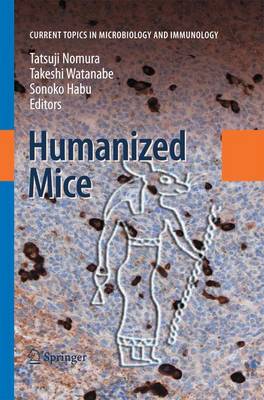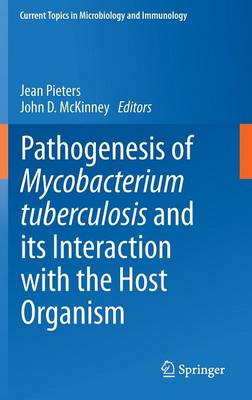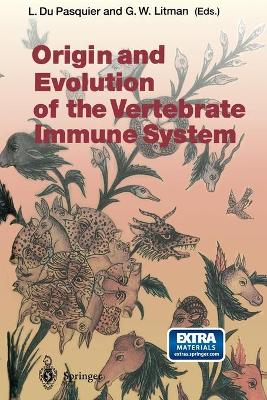(To see other currencies, click on price)
MORE ABOUT THIS BOOK
Main description:
For more than ten years cell fusion techniques have been applied in studies on various lymphocyte functions. Ig expression was first studied in hybrids obtained by fusing myeloma cells with fibroblasts (1) or lymphomas (2), both of which do not produce Ig, and with Ig producing myelomas (3) or human blood lymphocytes (4). Kohler and Milstein (5) fused a myeloma with spleen cells from immunized mice. Up to 10% of the hybrids obtained secreted antibodies specific for the immunizing antigen. This suggested that plasma cells preferenti ally fused with the myeloma cells, a finding which was of enormous practical value. It was found that both Band T lymphocytes could be fused with the T cell tumor BW5147, which is however not permissive for Ig synthesis (6). A very large number of T cell hybridomas were generated by fusing BW5147 with cell populations containing in vivo or in vitro activated cells (7). The hybrids showed no specific T cell functions and binding assays for T cell receptors were not available. In particular, no hybrids were obtained which expreS1ed specific cytolytic activity that could be tested in short-term Cr release assays (8). However, the frustrations expressed about these failures, published in January, 1978 (9), were relieved by Taniguchi and Miller's publication a few months later of T cell hybridomas producing antigen-specific suppressor factors (10). Unfortunately, their hybrids rapidly lost factor production.
Contents:
Lectin-Dependent Cytolytic and Cytolymic T Helper Clones and Hybridomas.- Cytotoxic T Cell Hybridomas: Generation and Characterization.- Definition of Function-Related Isotypic Markers on T Cells.- An Antigen-Specific Suppressor T Cell Factor Controlled by Two Genes in the Immunglobulin Heavy Chain Linkage Group and in the I-J Subregion of the H-2 Complex.- Structural and Functional Studies on Antigen-Specific Suppressor Factors from T Cells and T Cell Hybrids.- Purification and Biochemical Analysis of Antigen-Specific Suppressor Factors Isolated from T-Cell Hybridomas.- Dissection of a Suppressor Cell Cascade.- 4-Hydroxy-3-nitro-phenylacetyl (NP)-Specific T Cell Hybridomas.- Regulation of the IgE Response by IgE Class-Specific Suppressor T Hybridomas.- Establishment of Functional, Antigen-Specific T Cell Lines by RadLV-Induced Transformation of Murine T Lymphocytes.- H-2-Restricted Helper Hybridomas: One Locus or Two Control Dual Specificity?.- T Cell Hybridomas Producing Antigen-Specific Factors Express Heavy-Chain Variable-Region Determinants.- Cytochrome c Specific T Cell Hybrid.- The Effect of Antigen Presentation on the Fine Specificity of Anti-Cytochrome c T Cell Hybridomas.- Analysis of the Anti-Self + TNP Immune Response: T Cell Lines, Clones and Hybridomas.- Functional Characteristics of T Cell Hybridomas Obtained by Fusion of TCGF-Dependent Helper T Cell Clones with BW5147.- A Stable TCGF-Producing T Cell Hybridoma and its Thioguanine-Resistant Variant Suitable as a Tool for the Construction of New Functional T Hybridomas.- Influenza Virus-Specific Murine T Cell Hybridomas Which Recognize Virus Hemagglutinin in Conjunction with H-2d and Display Helper Functions for B Cells.- A "Panreactive" T Cell Line and T Cell Hybridoma: Their Function in Helping B Cells.- A "Panreactive" T Cell Hybridoma Which Produces TCGF Constitutively.- Production of Antigen-Nonspecific Immunoregulatory Lymphokines by T Cell Hybridomas.- Human T Cell Hybridomas with Tetanus-Toxoid-Specific Helper Activity.- Functional Analysis of I1-2 Produced by T-Cell Hybridomas: I1-2 Promotes T-Cell Growth But Does Not Mediate T-Cell or B-Cell Maturation and Differentiation.- Molecular Characterization of Interleukin 2 Produced from Tumor Cell Lines and T Cell Hybridomas.- The Use of T Cell Hybridomas in the Biochemical and Biological Characterization of Multiple Regulatory Factors Produced by T Cells.- Different Factors Active in Lymphoid and Hematopoietic Proliferation Produced by Single Clones of Helper T Cell Hybridomas.- Lymphotoxin and Immune (?) Interferon Production by T Cell Lines and Hybrids.- Antigen Specificity of Continuous T Cell Lines.- List of Contributors.- Indexed in Current Contents.
PRODUCT DETAILS
Publisher: Springer (Springer-Verlag Berlin and Heidelberg GmbH & Co. K)
Publication date: November, 2011
Pages: 280
Weight: 488g
Availability: Available
Subcategories: Immunology, Microbiology, Oncology
From the same series
Eric Vivier
Kevin V. Morris
Esteban Domingo
Eric Vivier
Tomohiro Kurosaki
Christian Munz
Christian Munz
Michael G. Katze
Bryan R. Cullen
David S. Goodsell
G. Singh Chhatwal
Ralf Bartenschlager
Ellen Heber-Katz
Andreas Rummel
Juan J. Lafaille
Thomas E. Shenk
Ben Adler
Michael B. A. Oldstone
Friedrich Koch-Nolte
Marco Falasca
Michael B. A. Oldstone
Benhur Lee
Freddy Radtke
Klaus Aktories
Jean Langhorne
Michael B. A. Oldstone
Jeremy Nuttall
Robert N. Eisenman
Z F Fu
Peter K. Vogt
Tatsuji Nomura
Wilfried Ellmeier
Marc Daeron
H. Koprowski
Hilary Koprowski
Simon Fillatreau
G. Balakrish Nair
Harris G. Fienberg
Michael B. A. Oldstone
R.M.E. Parkhouse
Lars B. Olding
Charles L. Sawyers
Cornelis Murre
Nicholas Mantis
Pamela A. Kozlowski
Charles E. Samuel
Larry J. Anderson
Kenneth Palmer
Marcel B.M. Teunissen
Rudolf Valenta
M.B.A. Oldstone
Thomas Boehm
Cesare Montecucco
Michael B.A. Oldstone
Hubert Hilbi
Hilary Koprowski
Hung Y. Fan
Walter Doerfler
Polly Roy
Michael Karin
Bryan R. Cullen
Glenn Dranoff
Rafi Ahmed
Jurgen A.. Richt
Ulrich Dobrindt
Ellen Heber-Katz
G. Singh Chhatwal
Ralf Bartenschlager
Peter K. Vogt
Robert L. Coffman
Michael G. Katze
Harald Stenmark
Andreas Rummel
Christian Rommel
Fritz Melchers
H. Koprowski
Didier Trono
Uwe Gross
Christian Rommel
M. Celeste Simon
John E. Johnson
K. Takada
Ellen Heber-Katz
C. Schmaljohn
Axel Rethwilm
Jerry L. Workman
Louis B. Justement
Marco Falasca
P.K. Vogt
Michael N. Hall
M.B.A. Oldstone
K. Hirai
Eric Vivier
Allison Abendroth
Oystein Bruserud
Carolyn Wilson
Freddy Radtke
Benhur Lee
Klaus Aktories
Harald Zur Hausen
J.S. Mackenzie
Adrienne E. Clarke
Stefan H.E. Kaufmann
Bernhard Fleischer
Michael Potter
H. Koprowski
H. Koprowski
Rolf Jessberger
Charles L. Sawyers
Chihiro Sasakawa
Vojo Deretic
Alan L. Rothman
Marco Colonna
H. Koprowski
Karl Maramorosch
H. Koprowski
Eckhard R. Podack
Paul Spearman
Takashi Saito
H. Koprowski
W. Doerfler
Michael Loos
H. Koprowski
Daniel Kolakofsky
H. Koprowski
H. Koprowski
Michael Potter
Kenneth I. Berns
H. Koprowski
J. Lindsay Whitton
Fritz Melchers
Nicholas Mantis
Cornelis Murre
Pamela Kozlowski
Klaus Aktories
Fritz Melchers
O. Haller
Peter K. Vogt
Norman L. Letvin
Dan R. Littman
Michael Potter
Robert F. Ramig
Gillian M. Griffiths
H. Koprowski
David Gray
T.A. Trautner
Michael B. A. Oldstone
Jiri Mestecky
Richard W. Moyer
Fritz Melchers
Michael B. A. Oldstone
Guido Kroemer
Hilary Koprowski
H. Koprowski
Peter K. Vogt
Bruce W. Chesebro
Charles J. Parker
P.J. Sansonetti
H. Koprowski
Rolf Knippers
Walter Doerfler
Klaus Jann
Virginia L. Miller
Marie H. Kosco-Vilbois
Peggy J. Farnham
Peter M Schlag
Thomas M. Shinnick
Hilary Koprowski
Anthony J. Pawson
Walter Doerfler
Peter K. Vogt
Klaus Jann
Vincent R. Racaniello
Nicholas Muzyczka
Mark Bothwell
Volker Ter Meulen
Jean-Pierre Kraehenbuhl
Michael B. A. Oldstone
P.H. Hofschneider
Steinunn Baekkeskov
H. Koprowski
F. Melchers
Garnett Kelsoe
Arthur E. Frankel
Michael B. A. Oldstone
Michael B. A. Oldstone
Peter Sarnow
Hermann Wagner
Rudolf Rott
H.L. Robinson
Fritz Melchers
John J. Holland
Jeffrey L. Dangl
Richard W. Compans
Charles Mackay
Beat A. Imhof
H. Koprowski
P.K. Vogt
H. Koprowski
P.A. Bachmann
P.K. Vogt
W. Doerfler
H. Koprowski
P.K. Vogt
Leslie Hudson
Michael Potter
Fritz Melchers
Michael B. A. Oldstone
William S. Mason
Peter K. Vogt
H. Koprowski
P.K. Vogt
Melvin J. Bosma
James K. McDougall
Stefan H.E. Kaufmann
N.J. Dimmock
Peter K. Vogt
Michael B. A. Oldstone
Walter Orenstein
Hans-Georg Krausslich
Fritz Melchers
Christa E. Muller-Sieburg
John D. Lambris
Siamon Gordon
Hermann Wagner
H. Koprowski
Hilary Koprowski
D.B. Willis
Walter Doerfler
A. J. Shatkin
P.K. Vogt
Christopher J. Paige
Michael Potter
Michael B. A. Oldstone
W. Doerfler
Henry C. Wu
Hermann Wagner
Michael B. A. Oldstone
H. Koprowski
H. Koprowski
H. Koprowski
H. Koprowski
Barry T. Rouse
H. Koprowski
Fritz Melchers
H. Koprowski
H. Koprowski
H. Koprowski
H. Koprowski
Charles E. Samuel
H. Koprowski
H. Koprowski
H. Koprowski
Hans-Dieter Klenk
David W. Weiss
U.H. Koszinowski
Ernst-L. Winnacker
Steven Tracy
L. Du Pasquier
Michael B. Kastan
H. Wagner
Fritz Melchers
Ursula Gunthert
T. Ulf Westblom
P.K. Vogt
Lena Claesson-Welsh
C.H. Hagedorn
Stanley B. Prusiner
Wolfgang Baumeister
Bruce Beutler
Louis B. Justement
Ursula Gunthert
Marcel B.M. Teunissen
Rudolf Valenta
Michael Karin
Glenn Dranoff
Rafi Ahmed
Inger Helene Madshus
Lyubomir T. Vassilev
Martin L. Privalsky
Walter Doerfler
Alexander Steinkasserer
Dennis R. Burton
T.M. Koehler
Jurgen A.. Richt
Walter Doerfler
David A. Harris
Yoshihiro Kawaoka
Paula M. Pitha
Branch D. Moody
Scott Dessain
James L. van Etten
Michael B. A. Oldstone
Tony Romeo
Rafi Ahmed
Steven Tracy
Harald Zur Hausen
Michael B. A. Oldstone
Thomas E. Lane
Tasuku Honjo
Marianne Manchester
Walter Doerfler
Diane E. Griffin
Mark Marsh
Alexander V. Karasev
Dorian McGavern
B. W. J. Mahy
Riccardo Dalla-Favera
Sanjeev Krishna
Patrice Boquet
Klaus Aktories
Luis Enjuanes
Christian Rommel
Christian Rommel
M. Celeste Simon
John E. Johnson
Oystein Bruserud
Allison Abendroth
Peter E. Lipsky
Walter Doerfler
Stanley A. Plotkin
John L. Casey
William M. Shafer
Esteban Domingo
Eric Vivier
Takashi Saito
Paul Spearman
Chihiro Sasakawa
Alan L. Rothman
Vojo Deretic
Walter Orenstein
Dorian McGavern
Alexander V. Karasev
Harald Zur Hausen
Michael B. A. Oldstone
Michael B. A. Oldstone
James L. van Etten
Marianne Manchester
Thomas E. Shenk
Tatsuji Nomura
Tony Romeo
Steven Tracy
Peter K. Vogt
Scott Dessain
Paula M. Pitha
D.B. Moody
Peter K. Vogt
Robert A. Weiss
Rafi Ahmed
Stanley A. Plotkin
Tasuku Honjo
Walter Doerfler
William M. Shafer
John L. Casey
Peter E. Lipsky
Thomas E. Lane
Robert N. Eisenman

































































































































































































































































































































































































































